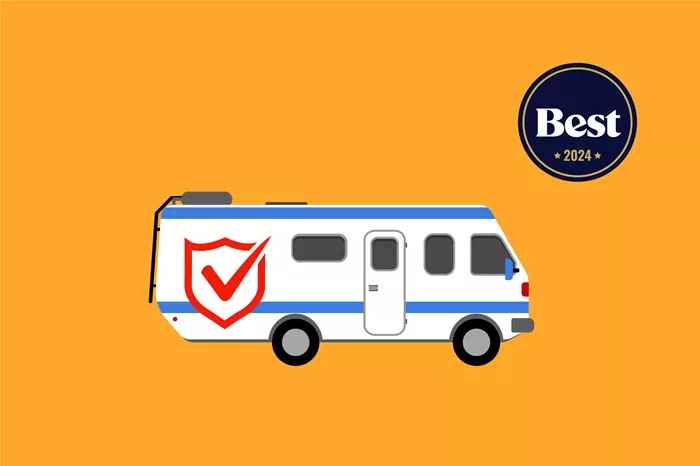When it comes to protecting your recreational vehicle (RV), having the right insurance in place is essential. Whether you’re a full-time RV traveler or a seasonal user in Ontario, Canada, understanding the ins and outs of RV insurance is crucial to ensuring your vehicle is covered in case of accidents, damages, or other unforeseen incidents. This article will provide a comprehensive guide to RV insurance in Ontario, covering key factors such as RV insurance coverage, RV insurance rates, how to compare RV insurance, and the factors that impact RV insurance cost.
What is RV Insurance and Why is it Important?
RV insurance is a specialized type of vehicle insurance designed to protect owners of recreational vehicles. An RV combines both the attributes of a car and a home, which means that having proper insurance coverage is necessary to protect your property, passengers, and assets. In Ontario, as in other parts of Canada, RVs are treated differently than regular vehicles, and this calls for tailored insurance solutions.
RV insurance ensures that your vehicle is protected in case of an accident, theft, fire, or vandalism. Additionally, it also covers liability, which is essential for any damages you cause to others while operating your RV. If you frequently drive your RV, especially on long trips or to remote areas, having trustworthy insurance can save you from unexpected financial burdens.
Types of RV Insurance in Ontario
Just like car insurance, RV insurance in Ontario is available in different types. Depending on your needs, the most common options are:
1. Liability Insurance
Liability insurance covers damages to other vehicles or property if you’re at fault in an accident. In Ontario, this type of insurance is mandatory for all vehicles, including RVs. The coverage ensures that any harm caused to others is compensated, preventing you from facing high out-of-pocket expenses.
2. Comprehensive Insurance
Comprehensive RV insurance covers damages to your vehicle that result from incidents such as vandalism, theft, fire, or natural disasters. This option is recommended if you’re concerned about the risk of unforeseen events when your RV is not on the road.
3. Collision Insurance
Collision insurance covers damage to your RV resulting from a collision with another vehicle or object, regardless of fault. If you are involved in an accident that causes significant damage to your RV, collision insurance will help pay for repairs or replacement costs.
4. Personal Injury Protection
Personal injury protection (PIP) is essential if you or your passengers are injured in an accident while in the RV. It covers medical expenses, lost wages, and other related costs that arise from the injury. Some RV insurance policies offer this as an add-on to ensure comprehensive protection for your loved ones.
5. Comprehensive Coverage Package
This is an all-in-one insurance policy that combines liability, collision, and comprehensive coverage. By opting for a comprehensive package, you can enjoy peace of mind knowing that all aspects of your RV are covered.
How Much Does RV Insurance Cost in Ontario?
The RV insurance cost in Ontario depends on several factors, such as the type of RV, the age and condition of the vehicle, the level of coverage, and the driving history of the owner. On average, the cost of RV insurance in Ontario ranges from $1,000 to $3,000 per year. However, rates can vary based on the following considerations:
1. Type of RV
The type of RV you own plays a major role in determining the insurance cost. A motorhome, which has its own engine and is used as a primary vehicle, tends to have higher premiums compared to a travel trailer that is towed by another vehicle.
2. Driving History
Your driving history is another critical factor in determining RV insurance rates. Drivers with clean records and no history of accidents or traffic violations generally pay less for insurance. On the other hand, individuals with a history of accidents or claims may face higher premiums.
3. Coverage Limits
The level of coverage you select will affect your premium. If you choose higher coverage limits for liability, comprehensive, and collision insurance, your premiums will naturally be higher. However, opting for a basic plan with lower limits may result in a more affordable policy.
4. Deductibles
Your deductible is the amount you’ll pay out-of-pocket before your insurance policy kicks in. A higher deductible typically results in lower premiums, but it also means you’ll have to pay more if you make a claim.
5. Usage and Storage
How often and where you use and store your RV can also influence the cost of your insurance. RVs that are used year-round, especially for long road trips, will generally cost more to insure. In contrast, RVs stored in secure facilities during the off-season may be eligible for lower premiums.
How to Compare RV Insurance Rates in Ontario
If you’re looking for the best deal on RV insurance, it’s important to compare RV insurance rates from different providers. Here are some tips for effectively comparing rates:
1. Understand Your Coverage Needs
Before you start comparing quotes, it’s important to assess your insurance needs. Are you looking for basic liability coverage or comprehensive protection for your RV? Knowing what you need will help you compare apples to apples and ensure you’re not overpaying for unnecessary coverage.
2. Use Online Tools
Many insurance companies offer online tools where you can get quick RV insurance quotes. Take advantage of these tools to gather quotes from multiple providers and evaluate the prices and coverage options available.
3. Check Customer Reviews
When comparing RV insurance companies, it’s essential to read customer reviews. Look for providers with a reputation for excellent customer service and timely claims processing. A policy may seem affordable, but if the insurer has a history of poor claims handling, it could end up costing you more in the long run.
4. Speak with an Insurance Broker
If you’re unsure about which coverage is best for your RV or how to navigate the different policies, consider speaking with an experienced insurance broker. They can help you understand the options available, get RV insurance quotes, and help you find the most competitive rates in Ontario.
Additional Tips for Saving on RV Insurance in Ontario
While RV insurance is necessary, there are ways to save on your premiums without sacrificing coverage. Here are a few strategies to consider:
1. Bundle Your Insurance
If you have other insurance policies, such as home or car insurance, consider bundling them with the same provider. Many insurers offer discounts for customers who purchase multiple policies, which could reduce your overall premiums.
2. Maintain a Good Driving Record
Maintaining a clean driving record can go a long way in reducing your insurance costs. Avoid traffic violations, accidents, and claims to ensure you’re eligible for lower premiums.
3. Store Your RV Securely
If you’re storing your RV during the off-season, consider keeping it in a secure location such as a storage facility with surveillance. Some insurance companies offer discounts for RVs stored in secure locations, as they are less likely to be damaged or stolen.
4. Pay Annually
Some insurers offer a discount if you pay for your entire year’s coverage upfront. While this may require a larger initial payment, it can save you money in the long run.
Conclusion
Understanding the ins and outs of RV insurance in Ontario is essential for protecting your recreational vehicle and your financial well-being. Whether you’re looking for RV insurance coverage, comparing rates, or learning how to reduce costs, taking the time to find the right policy can provide you with the peace of mind you need to enjoy your travels. Remember to evaluate your coverage needs, compare different providers, and choose a plan that offers the protection you require at a competitive price.
Related topic:
Progressive RV Insurance: A Complete Guide for RV Owners






















